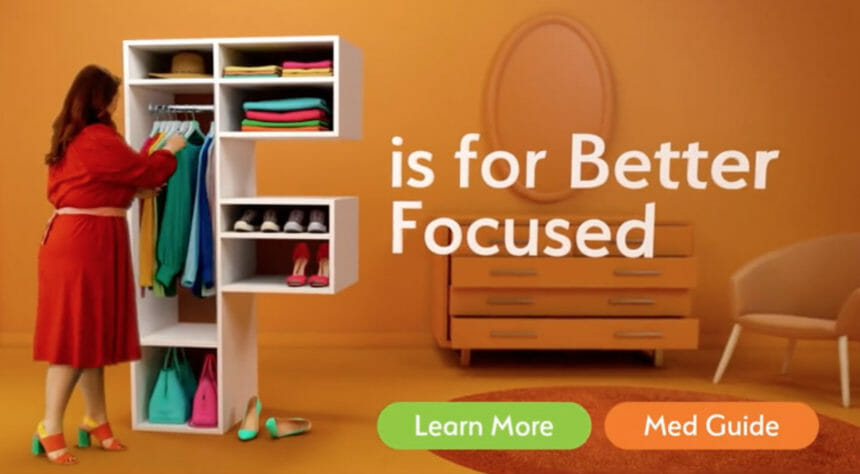Takeda crafted its latest campaign for Vyvanse to be easily digestible for people with ADHD.
The campaign, V for Vyvanse, uses the alphabet to help adults with ADHD (attention deficit hyperactivity disorder) see their condition in a positive light. The ads show messages like “F is for better focused” and “I is for less impulsive” to show how Vyvanse can help them manage their symptoms.
“The campaign was designed with a person living with ADHD in mind, using vibrant, eye-catching letters and short, easily digestible copy,” said Kristie Whitehouse, director of consumer marketing of the neurodevelopment franchise at Takeda. “By associating big, bold letters with the core symptoms that patients want to manage, it makes a quick, visual, emotional connection to what symptom control can look like in their everyday lives.”
The campaign is also meant to encourage people who have some ADHD symptoms to talk to their doctor. ADHD is more often associated with children, so many adults go undiagnosed. Whitehouse said an estimated six million adults have undiagnosed ADHD.
For the patients who are diagnosed, many will shut down or disengage when reminded of the impact of their condition, based on Takeda’s research of 1,200 patients.
“So, we set out to tell a different kind of story that empowered patients to see their symptoms in a more positive light and encourage them to take the next step in talking with their doctor about treatment options,” Whitehouse said.
The campaign is running across channels including Facebook, Youtube and Instagram ads, along with space on health-focused websites like WebMD and ADDitude, a publication focused on ADHD.
She also noted that COVID-19 may be putting extra stress on people with ADHD, making the need for a positive campaign about the condition even more important.
“People with ADHD can often feel overwhelmed by their symptoms, or that it defines who they are,” Whitehouse said. “With the added challenges and stressors that people with ADHD may be experiencing during the COVID-19 pandemic, Takeda feels it is important now more than ever to provide patients with a sense of positivity and arm them with information on ADHD and treatment options available.”








